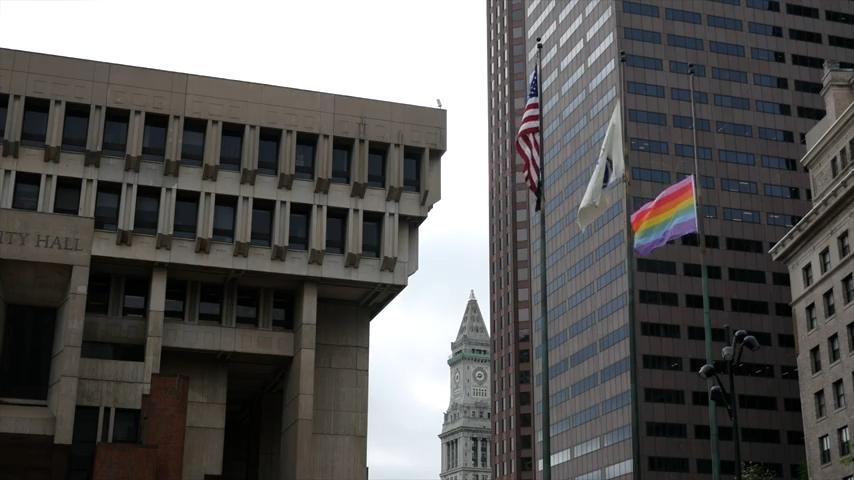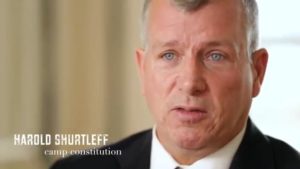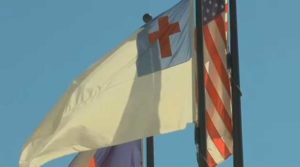 BOSTON — The City of Boston held a virtual flag-raising ceremony on June 5 to commence the 50th annual Boston Pride Week, celebrating the sins of homosexuality and bisexuality. Boston remains embroiled in a federal lawsuit after it denied a private group’s request to fly the Christian flag over City Hall during their temporary event recognizing Constitution Day.
BOSTON — The City of Boston held a virtual flag-raising ceremony on June 5 to commence the 50th annual Boston Pride Week, celebrating the sins of homosexuality and bisexuality. Boston remains embroiled in a federal lawsuit after it denied a private group’s request to fly the Christian flag over City Hall during their temporary event recognizing Constitution Day.
“In Boston, we’re very proud of how far we’ve come,” Mayor Ben Walsh said during the recorded event, which was posted to the Boston Pride YouTube page with the hashtag #wickedproud. “We’re proud of the trailblazers and activists who’ve changed the world, and we’re proud that many of them call our city home.”
“We’re going to keep fighting for greater visibility and representation for people of all sexualities and gender identities,” he stated. “We won’t let anyone take us backward.”
Walsh advised that since the in-person Pride event had to be canceled this year, the City looked for other ways to observe the occasion. He said that part of the plan includes lighting City Hall in rainbow colors.
Republican Gov. Charlie Baker also spoke to viewers, thanking those involved with Boston Pride.
“You’ve made an enormous difference for the people in the Commonwealth and in the city of Boston, and you really have changed the world over the course of the past 50 years,” he stated. “God bless and good luck in the next 50.”
Davron Monroe, an award-winning singer who performs opera, theater, gospel and jazz, sang the national anthem for the virtual event, and the song “Raise You Up” from the Boston Gay Men’s Chorus played as footage showed the rainbow flag being run up the pole at City Hall.
As previously reported, the City of Boston was sued in 2018 after it rejected a group’s application to fly the Christian flag outside City Hall during an event celebrating the religious history of the city and the contributions made by Christians.
Camp Constitution sought to host an event in September 2017 in front of Boston City Hall, which would include short speeches by local pastors outlining the religious history of the city. September 17 is recognized as “Constitution Day and Citizenship Day” by federal statute, and citizens have been approved to fly flags during their events on numerous occasions.

However, when director Hal Shurtleff applied to fly the Christian flag on the pole through the duration of the event, his request was denied. Gregory Rooney, the commissioner of the Property Management Department, advised in writing that “[t]he City of Boston maintains a policy and practice of respectfully refraining from flying non-secular flags on the city hall flagpoles.”
He said that the City’s policy was based on the First Amendment’s “establishment of religion” clause, and outlined that he would consider a request to fly a non-religious flag, which Shurtleff declined.
According to the Camp Constitution website, the group exists “to enhance understanding of our Judeo-Christian moral heritage, our American heritage of courage and ingenuity, including the genius of our United States Constitution, and the application of free enterprise, which together gave our nation an unprecedented history of growth and prosperity, making us the envy of the world.”
Camp Constitution consequently obtained legal representation, which wrote to the City to contend that the denial was unconstitutional. It soon also filed suit, noting that other flags that were approved to be flown include the rainbow flag for homosexual Pride Month, as well as a blue, pink and white flag to recognize those who identify as transgender.
“Proud to fly the #TransFlag over Boston City Hall for the 1st time in MA history — a sign that everyone is welcome,” Mayor Walsh tweeted in 2016.
 A federal judge ruled against Camp Constitution in August 2018, as did an appeals court, and Shurtleff refiled the legal challenge.
A federal judge ruled against Camp Constitution in August 2018, as did an appeals court, and Shurtleff refiled the legal challenge.
In February, Judge Denise Casper, appointed to the bench by then-President Barack Obama, likewise rejected Shurtleff’s arguments, concluding that the flag — being raised at City Hall and adjacent to government emblems — would constitute, and be considered by the public as, government speech. The City is therefore permitted to control the message being expressed, she stated.
“It is not only that the flagpole on which Shurtleff’s Christian flag would be flying is on the steps of City Hall, but also that this ‘third-party flag would keep company with the United States flag and the flag of the Commonwealth of Massachusetts, two powerful governmental symbols,’” Casper wrote.
“That a keen observer might also observe that this third-party flag was flying on the pole ordinarily reserved for the flag of the City of Boston for a time would be even greater cause to attribute such speech to the City,” she opined. “By any measure of identity of the speech being that of the City or, alternatively, by any reasonable observer standard, the Christian flag waving on the City’s flagpole would be readily attributed to the City.”
Casper also noted that while the City of Boston has flown many other flags — those representing other countries and one for homosexual pride — it doesn’t fly religious flags at all, and therefore is not in violation of the Constitution’s Equal Protection clause.
“The City’s desire not to have its speech co-opted to promote a religious message cannot be seen as an improper inhibition of religion, when its primary reason for denying the application was to avoid the risk of violating the Establishment Clause by appearing to make ‘a government effort to favor a particular religious sect,’” she wrote.
The ruling is currently under appeal before the First Circuit Court of Appeals.
Jesus said in Mark 8:38, “Whosoever therefore shall be ashamed of Me and of My words in this adulterous and sinful generation of him also shall the Son of man be ashamed when He cometh in the glory of His Father with the holy angels.”
Become a Christian News Network Supporter...


